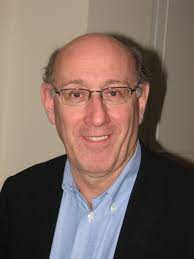Joe Rogan was interviewing comedian Gilbert Gottfried last week about Gottfried’s career.
During the interview, Gottfried tells the story of one his first breaks. MTV had stopped by one of Gottfried’s gigs and started filming.
“People started recognizing me,” Gottfried said. “And it’s because MTV had filmed me and they chopped it up and showed it on MTV. And that was the first time I was known and it was something good.”
Were they paying you for that? Rogan asked.
“They weren’t paying me at first,” Gottfried said. “I later asked them – can I get something? Do I get anything? Then they sent me a couple of hundred dollars. My agents at William Morris — they wound up taking ten percent of that – for something they had zero to do with.”
This appears to be a recurring problem in America.
People taking ten percent for something they had zero to do with.
And now it turns out that some plaintiff trial lawyers are taking ten percent ($145,000) or more of the $1.45 million per victim of the Boeing 737 Max crashes – “ten percent for something they had zero to do with,” as Gottfried put it.
In fact, the Boeing compensation fund was set up by prosecutors at the Department of Justice when earlier this year they entered into a deferred prosecution with Boeing.
As part of the settlement, Boeing was required to pay $500 million to the 346 victim families – $1.45 million per victim.
Kenneth Feinberg’s law firm was hired by Boeing to distribute the funds.
As we reported recently, some families just filled out the paperwork without the help of a lawyer and got the funds.
Others were helped by the Feinberg firm – they came in pro se.
Some hired lawyers and the lawyers refused to take a fee – because they were also representing the victim families in private wrongful death cases in civil court in Chicago, Illinois.
But a large number of the families – apparently not aware that there were lawyers willing to secure the funds without a fee or that they could proceed pro se – hired lawyers who took a percentage of the $1.45 million.
The deferred prosecution agreement makes clear that Boeing “agrees to pay for all costs, fees and expenses incurred by the administrator” of the fund and that the Justice Department’s Fraud Section has the final say on how the money is distributed.
So in the cases where co-administrators Ken Feinberg and Camille Biros helped pro se victims, then under the agreement, Boeing would be required to pay for all the fees and expenses.
But in a protocol on the compensation fund’s web site, Feinberg signals that things can be easier with an attorney and that a 10 percent fee would be reasonable.
“The assistance of an attorney, while not required, can promote a more efficient, speedier and accurate submission of all necessary documents as well as safe and secure transfer of the funds,” the protocol says. “Because this compensation fund is intended to be streamlined, non-adversarial, efficient and expeditious, the administrators note that attorneys’ fees should not be excessive. By way of example, the Zadroga Act of 2010, which addressed the individual financial awards to victims of the 9/11 attacks, capped attorneys fees at 10% of the total amount of compensation allocated to the claimant.”
But former federal prosecutor Robert Fellmeth says if lawyers are involved in representing the families to secure their $1.45 million from the Feinberg fund, they shouldn’t be getting ten percent or any percent.
At most, they should get an hourly rate for pulling together the paperwork needed to present to the fund.
Fellmeth is Price Professor of Public Interest Law at the University of San Diego School of Law, director of the Centers for Public Interest Law, and former California State Bar Discipline Monitor.
“The fee should be related to the work and risks involved,” Fellmeth told Corporate Crime Reporter. “Usually a contingency is based on the risk. Risk of spending two years and getting nothing. You don’t do contingency fees when you are talking about a certain amount that is guaranteed by the Justice Department.”
“Figure out what the hours shall be — and not ten thousand dollars an hour.”
“It may involve a certain amount of inquiry. It should be based on an hourly fee. There is no contingency here. You got the money. If there is a fee, it should be in the $200 an hour range.”
“This is a decision to be made by the Justice Department,” Fellmeth said. “They secured the $500 million fund. The victims should be getting the money. Their fiduciary duty is to the victims who were aggrieved. They have a definite and strong obligation to make sure that no one reduces the amount of money that goes to those they should be concerned about – the victims. I blame the Justice Department.”
“I do not understand the ethics of an attorney fee arrangement that provides a reward for counsel for victims, but who did not litigate the case, took no risk and are apparently only performing minor paperwork.”
“The conflicts and inequities here warrant judicial review,” Fellmeth said. “They also warrant Department of Justice intervention. The Department of Justice owes a fiduciary duty of the highest order to the victims and the public. There should also be court and bar review of conflicts and of quantum meruit evaluation of fees received by counsel — which will be necessarily subtracted from the actual victims.”
